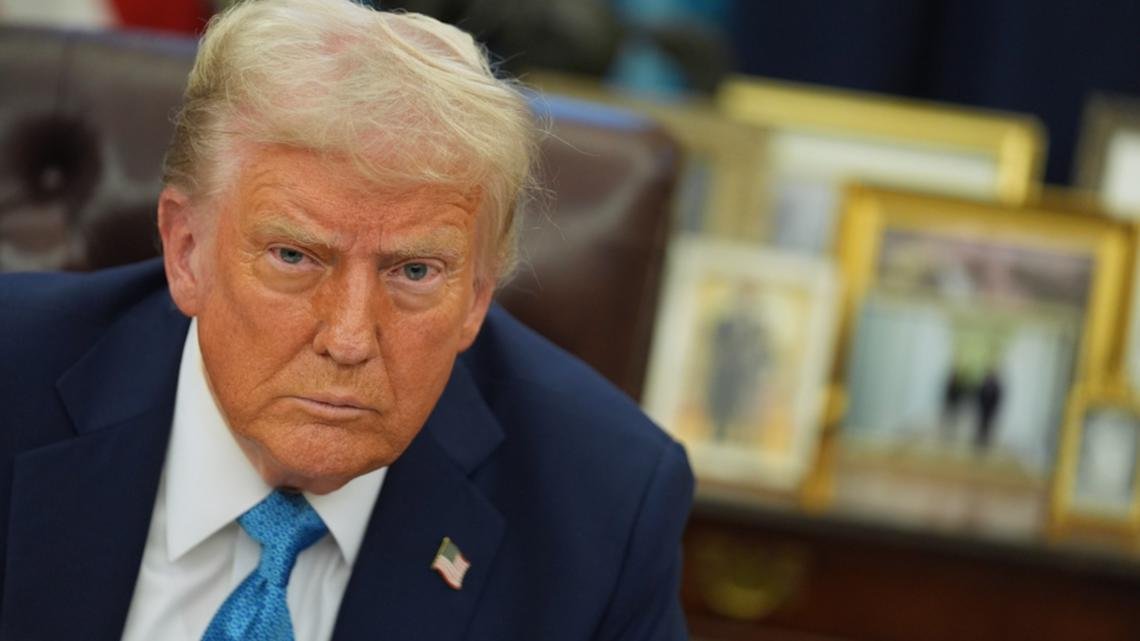Business
Trump Warns of Potential ‘Pain’ for Americans Amid New Tariff Announcement

PALM BEACH, Fla. — Former President Donald Trump acknowledged potential economic ramifications for Americans from the ongoing trade tensions stemming from his tariffs on Canada, Mexico, and China. “WILL THERE BE SOME PAIN? YES, MAYBE (AND MAYBE NOT!),” he remarked in a social media post. He maintained, however, that these sacrifices would be worthwhile in the pursuit of making America great again.
Trump’s recent tariff announcement, made during his stay at his Florida resort, has ignited a wave of apprehension among various stakeholders. It may disrupt a long-standing trade relationship between the U.S. and its neighbors while exacerbating existing tensions with China. In response to inquiries, Trump hinted at imposing additional tariffs on entities like the European Union and potentially the United Kingdom.
Canada’s reaction was swift, with U.S. Ambassador Kirsten Hillman expressing confusion over Trump’s approach. “We view ourselves as your neighbor, your closest friend, your ally,” she stated, highlighting the strong ties that have been put at risk. Trump’s tariffs include a 25% charge on Canadian goods and a 10% levy on energy imports, prompting Canada to retaliate with significant tariffs on over $155 billion worth of U.S. products.
By reaffirming his intention to impose tariffs, Trump also arguably undermines his earlier commitment to tackle domestic inflation, a concern initially central to his electoral platform. The economic consequences could affect consumers and businesses across the U.S. as they bear the brunt of these trade penalties.
Trump expressed confidence that existing U.S. resources and manufacturing capabilities make the country less reliant on Canada, declaring that without its trade surplus, “Canada ceases to exist as a viable Country.” Nonetheless, experts point out that a significant portion of U.S. oil imports originates from Canada, which contradicts his assertion of self-sufficiency.
Meanwhile, Canada’s Prime Minister Justin Trudeau has encouraged citizens to support local products. More than 75% of Canadian exports are directed to the U.S., signaling the intertwined nature of both economies. Trudeau aims to mitigate the impact of tariffs on a broad array of goods, marking this as a beginning phase of retaliatory measures.
As tensions escalate, Mexican President Claudia Sheinbaum has also announced new tariffs and urged the U.S. to address domestic issues like drug addiction to stem the roots of economic concerns. She and Trudeau have reaffirmed their dedication to maintaining strong bilateral relations amidst these conflicts.
In light of these developments, economic analysts caution that the tariffs could lead to inflationary pressures, affecting American households significantly. A study from Yale suggests that continued tariff implementation could cost the average household approximately $1,245 in disposable income this year alone, amounting to an extensive financial burden over the next decade.
Historically, Trump’s rhetoric framing these tariffs as a solution recalls a cautious balancing act between his political aspirations and the economic realities facing American families. As discussions continue, the prospect of further tariffs looms, raising questions about their potential permanence and resulting impact on U.S. trade relations.
Contributors to this report include Associated Press writers Michelle L. Price in New York and Rob Gillies in Toronto, reflecting the widespread implications of these unfolding events.


















